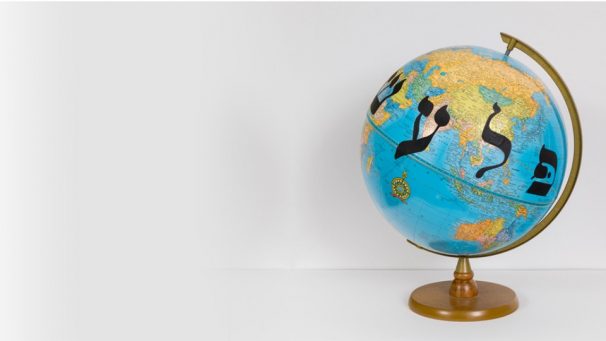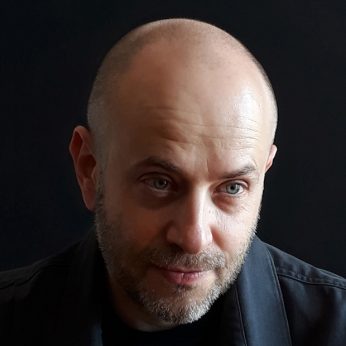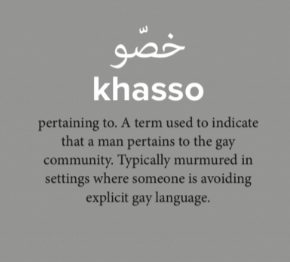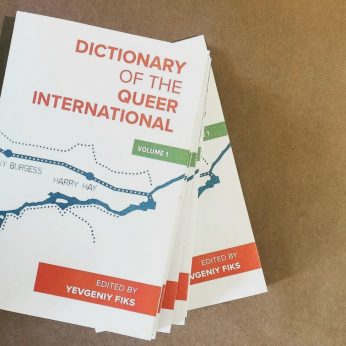
A treasure hunt awaits you, Dear Reader, one that will uncover brilliant word gems and coined phrases from around the world, and that will also lead you into endless mysteries, byways, false doors, and linguistic traps. All in the tongue-in-cheek attempt to reset global consciousness according to the precepts of a new International—and one is so badly needed in these times—but now the specter of, yes, the Queer International!
Folks on the left will surely recall the Comintern, or Communist International, a project led by Moscow from the 1920s to 1940s that aimed to coordinate global political theory, strategy, and practices. It was not only queers who used the term “Homintern” to refer to that informal system of mutual aid that queers developed especially in certain arenas, like higher-end arts institutions, where LGBTQ professionals were positioned to hire and promote some of their own. It never amounted to much more than that, ’cept maybe in Joe McCarthy’s feverish wet dreams.
A big open tent

Human beings are forever seeking similarities and fraternity in one another, through faith, language, culture, politics, class, and also sexual attraction. The Dictionary of the Queer International is a big open tent where people from every corner of the globe can assemble, mingle, and revel in each other’s myriad ways of self-expression. One of the words included here is “democratico—democratic. Adjective to indicate that a person has sex with everyone,” p. 69. How Whitmanesque! Another is “ena yesigaba sabasebenzi—proletariat,” p. 73. Queers of the world, unite!
The present book under review dubs itself “Volume 1,” which suggests endless possibilities for more volumes. After all, there are so many more cultures and languages to hear from, and then, too, terminology and material conditions evolve over time. Part of the aggravating, infuriating charm of the book is precisely the fact that it is a book at all and not an interactive website where the curious reader could search for words and concepts in whatever language they choose. It stands as both a gallant, winking nod to a venerable bibliographical tradition and at the same time a royal slap to its face.
Sources, languages, fonts, and scripts are all mashed together. A certain percentage of entries will be illegible to almost every reader—Arabic, Chinese, Korean, Russian and Bulgarian Cyrillic, Yiddish, Hindi, and several I couldn’t readily identify. Lesbians, transgender people, femmes and butches, closeted and out, all have the chance here to display the finery of their vocabulary in a cornucopia of radical egalitarianism. One thing that impressed me is how many contributors reference the whole gender discussion, differentiating biological sex from gender identity.
There is nonetheless some pretense at taxonomy. After editor Yevgeniy Fiks’s foreword and a short memoir by Evgeny Shtorn about growing up as a “blue boy” “on the border of the boundless Central Asian steppe at the time of great exodus of those who for different reasons ended up there during the Soviet era,” the dictionary proper begins, organized into five categories.
- First, the longest, “People, Identities, (Re)Slurs,” by which term I believe he means words, such as “queer” itself, which contain a wide range of nuances from outright condemnation to loving embrace depending on speaker and circumstance. Probably every culture has such words—terms we can use with affection amongst ourselves but which coming from outside are heard as hostile.
- Second is “Actions and Expressions,”
- Third is “Body and Mind,”
- Fourth “Attributes, Traits, Qualifiers,” and finally, “Objects, Concepts, Miscellaneous.”
These fungible divisions are often arbitrary, and indeed, some words get repeated from section to section, sometimes with different definitions, as more than one respondent may have submitted it.
Horizontality and the role of progressive queer culture

Fiks is a big thinker. “We live in a peculiar era when both universalism and intersectional solidarity are retreating as regional powers become stronger in a globalized world, giving rise to populist nationalism. In this situation, what is the role of progressive queer culture vis-à-vis global corporations and aggressive nation states? What is the function of the queer defense language at a time when there is an assault on pluralism globally, nationally, and locally?”
In the project he proposes, he endorses “cultural resistance to both hierarchical globalization and nationalist exclusion.” At the same time, he is not oblivious to the “conservative queer culture that is both eager to form alliances with local nationalist parties and promotes hierarchical, neoliberal globalization.” Consider them as comparable to the “comprador” class. The Dictionary, he posits, offers “a vision of an international queer language of multi-locality and horizontality.”
In what may seem to many readers an excess of democracy, to the disparagement of logic itself, the Dictionary “preserves the original usage and style of the language of the submissions in order not to impose uniformity and rigidity, introducing only minimal editing. The words and phrases submitted to the Dictionary were added in the order they arrived, without alphabetization, in order not to privilege any of the existing languages or alphabets.” In the interest of “horizontality,” the Dictionary does not even indicate the language of the entries. Oftentimes one illegible entry (except, of course, to those who do read that language) is defined only in that language, or even by a word written in another illegible language—Yiddish into Thai, Russian into Korean, etc. What are we to make of this listing (in Latin letters): “tokoloho e ngata—inkululeko,” p. 74? Our “horizontalist” goodwill is put to severe test.
“It has to be acknowledged,” Fiks admits, “that the English language is still privileged in the book, a reality that speaks of the legacy of imperialism in this particular moment in history.” To subvert that privilege, however, he as editor leaves in obvious mistakes, misspellings, and typos in the submissions received (such as, for example, a number of times “literary” is printed instead of the intended “literally”). In another instance, succeeding a number of Arabic (or Farsi?) terms for female, gay, bottom, top, there’s another word defined as “verse,” p. 16, which clearly was intended as “versatile.”
In one sense, he undercuts his own method, though, by listing the names of the countries from which submissions came, by alphabetical order, in English, from A (Austria) to V (Venezuela), although some of the words come from languages spoken in places like Burma, Thailand, and Vietnam, which are unlisted as source countries. So far, of course, Yiddish doesn’t have a territorial homeland. And he thanks his contributors, again privileging Latin letters which would not conform to the native alphabets of his correspondents, from A (Qureshi Abdullah) to Z (Andrei Zavalei).
The underground language of a despised people
Many if not most cultures have disparaged queer people to the point of ostracism and even death, claiming homosexuality is an importation or imposition from the outside. The Dictionary includes an “old offensive word” in the Kyrgyz language which, although insulting, nevertheless “serves as evidence of the existence of queer people in the nation in the past and confronts arguments about ‘western influence’ and ‘homosexual propaganda,’” p. 18. In many African lands, we know, it was homophobia itself that was brought in by European missionaries with their bibles.

In a number of instances, a definition is given that might have benefited from further explication. For example, “mana—sister (as a slang),” p. 13. This is from Spanish and is a shortened form of hermana, as mano is likewise a short form of hermano. Or “le onze août—friend of Dorothy,” p. 46; the term is French, meaning “August 11th” but where does that come from? (We know, or at least we who are in the know know, where Dorothy is from.) Or a Russian word in Cyrillic letters meaning “police, KGB,” p. 46, but the Russian letters clearly spell “Gestapo.” The phrase “cagar no maiô—to make a big mistake” is in Portuguese, though it borrows the French word maillot, literally meaning “to shit in your bathing suit,” p. 50.
Some more examples of terms whose definitions defy the imagination include “julie andrew—to be caught [cheating]” and “barbra streisand—to be rejected bluntly, blocked,” both p. 55, “brad pitt—how much?” p. 71, and “pagoda cold wave lotion—tired, exhausted,” p. 65. We have no information on where, in what language, such terms are used, not even how commonly understood they are there. Another term written in Russian, p. 55, translates as “a meeting of two older male homosexuals,” but the Russian, vstrecha na Elbe, literally refers to the meeting at the Elbe River in 1945 when the American and Soviet forces joined up to celebrate the defeat of Nazi Germany. All this is pertinent information, but it’s hidden to most readers behind the dense scrim of another language, another alphabet. At least “imelda marcos—e-mail,” p. 76, makes some phonetic sense in English, and perhaps that helps to explain some of the other terms, though we don’t know in what language.
In other cases, where the social context of a word is included, the correspondent has identified a term (in Arabic? Farsi?) referring to a gay man as “[t]ypically murmured in settings where someone is avoiding explicit gay language,” p. 15. A Kyrgyz correspondent attests to the still private sensibilities of some queer people who are not willing to come out or share the community’s codes: “There were also a couple of terms I was asked not to publish in order to keep them secret and therefore usable,” p. 18.
Social history and humor
There is much humor in the dictionary, and not all of it inaccessible to the non-queer reader. I enjoyed the Spanish terms (though not identified as such) “musculoca—gay man addicted to the gym” [someone crazy about muscles], “muerde-almohadas—bottom,” both p. 20, and “soplanuca—top” [someone who breathes on the back of your neck], p. 21. “[M]uerde almohadas” turns up again on p. 27 (no hyphen this time), defined as “pillow biter,” so between the two entries a reader can assemble a vivid image. Chinese correspondents contribute many items represented by their appropriate ideographs, but three amusing numerical terms they supplied on pp. 22-23 will be easily understood anywhere in the world: “0—bottom,” “1—top,” “0.5—versatile.”
Some definitions are recognizable social types found everywhere: A combination of three Chinese characters is explained, “while it literally translates to ‘a little wolf dog,’ it’s a slang for ruthless lover boys who are not afraid to break some hearts,” p. 25. Or the (unidentified) French term “ours polaire—an old, hairy guy with greying or white hair,” p. 31; that would be a “Polar bear” in English, but you have to figure that out for yourself.
A reader can learn some interesting queer history, for example: “jota—gay. It comes from the ‘J’ sector of the jail in mid-XXth century, where homosexual men were gathered,” p. 28. Another echo from olden times is this one: “england la?—an expression that is part of the jargon of the Burmese LGBT community and also works as a kind of joke that refers to the colonial past of Burma. Translated as: ‘are you English?’ it has the meaning of: ‘are you bottom?’ since England always went ahead or in the first place. Superbly!” p. 34.
And here’s a nice bit of social history that Emma (“If I can’t dance it’s not my revolution”) Goldman might have liked: “Ayya si’a el ‘arabi?—What time does the Arabic start? A phrase that originated in gay nightclubs, uttered by clubbers waiting in anticipation for Arabic music, fed up after a few hours of House, Techno, etc. Rich in rhythmic and upbeat tunes, Arabic melodies shall satisfy the dancers’ bodies as they shake it in and out of control. Outside the dance floor, the phrase can be a call for changing course, decrying a monotonous state prevailing thus far and hoping to stir it up,” pp. 50-51. I for one am always ready for the Arabic, how about you?
This definition has a most intriguing background: “ets del ram de l’aigua—literally meaning ‘you belong to the guild of water’ and it is slang for a faggot. Formally the ‘ram de l’Aigua’ was the guild that dyes fabrics, work is done mostly by women. For this reason, and for the use of colored dyes in the women’s clothes, this slang expression appears. Used in Catalonia,” p. 40.
If the most common Yiddish term for faggot, a feygele [little bird], is in the book somewhere, I guess I missed it, which is weird, given the editor’s profusely documented Soviet-Russian-Commie-globalist-Jewish-Yiddish-homo-artsy proclivities. But then this dictionary makes no claim to be comprehensive. Maybe he’s saving that for volume 2.
 Way toward the end, in the last section on “Objects, Concepts, Miscellaneous,” appears a term in Russian meaning “a gay cruising site,” p. 77. In transliteration it’s pleshka. That word appears twice more in the dictionary—in the “Pleshka-Globe” graphic by Fiks that serves as the frontispiece, spelled out in Yiddish letters (although we only see plesh; you’d have to travel to the Sahara and the North Atlantic to find the ka), and in the end credits which also mention the photographer Etienne Frossard. The dustjacket art (which I did not receive on my copy) sketches a rough map of the Jewish Autonomous Region of Birobidzhan in far eastern Siberia, further rooting this entire project in the intensely emotional yearning for a libertarian socialist reorganization of society governed by principles of inclusiveness, freedom, justice, and love.
Way toward the end, in the last section on “Objects, Concepts, Miscellaneous,” appears a term in Russian meaning “a gay cruising site,” p. 77. In transliteration it’s pleshka. That word appears twice more in the dictionary—in the “Pleshka-Globe” graphic by Fiks that serves as the frontispiece, spelled out in Yiddish letters (although we only see plesh; you’d have to travel to the Sahara and the North Atlantic to find the ka), and in the end credits which also mention the photographer Etienne Frossard. The dustjacket art (which I did not receive on my copy) sketches a rough map of the Jewish Autonomous Region of Birobidzhan in far eastern Siberia, further rooting this entire project in the intensely emotional yearning for a libertarian socialist reorganization of society governed by principles of inclusiveness, freedom, justice, and love.
And perhaps in an ultimate sense, this is really not a dictionary at all: Its fatal organizational apparatus certainly renders it virtually useless from any practical point of view. It’s the kind of book you hold in your hand, thumb through for something to catch your eye, and move on—aimlessly, though pleasurably, like the book of jokes you keep on the tank in the littlest room of your house. Rather, this is a collective aspirational work of conceptual utopian literary art that lifts up our amazing human diversity, our rich emotional lives, and our right to the full expression of our desire.
Dictionary of the Queer International
Edited by Yevgeniy Fiks
Publication Studio Guelph (Ontario), 2020
92 pp., $15
ISBN: 978-1-9992871-2-2












Comments